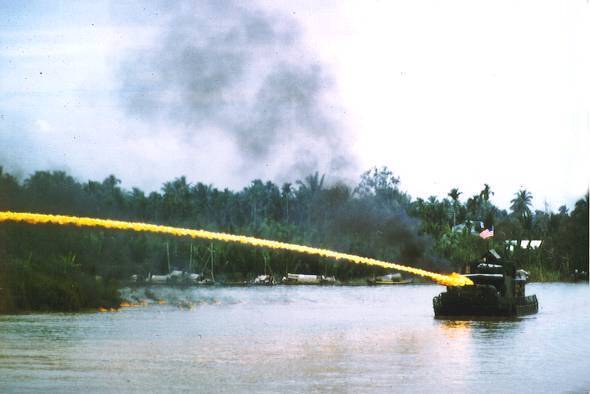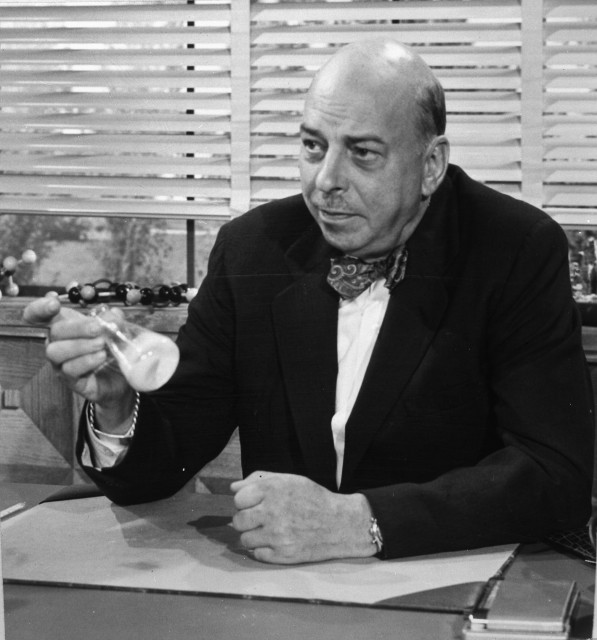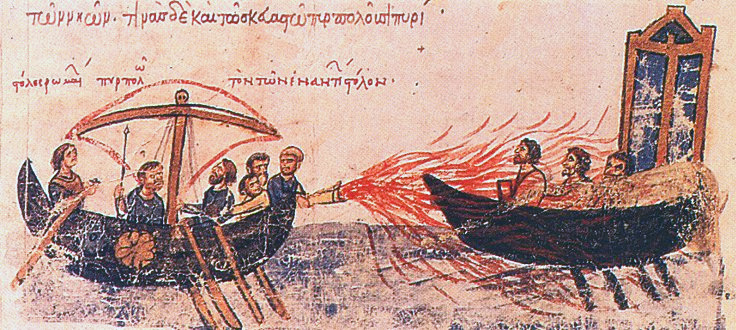April 24th, 2008 · 1 Comment
Historical Overview | Discovery & Development | Chemical Composition | Use in Warfare | Home
After liquid gasoline had been used in World War I and proven extremely dangerous, US chemists developed a thickener for gasoline which contributed to a more viscous and controllable substance. Napalm was first used in World War II in flame throwers and fire bombs. It came to particular attention during the Vietnam War. Its properties made it extremely useful in the warfare setting of the Vietnam jungle. Napalm was more efficient because it was less likely to damage the source (flame thrower, helicopter etc.) it was coming from. Also, the thickening agents slowed down the rate of burning which made it even easier to propel.

A U.S. riverboat using Napalm
[Read more →]
Categories: Napalm
April 24th, 2008 · Comments Off on Discovery & Development
Historical Overview | Discovery & Development | Chemical Composition | Use in Warfare | Home

Napalm was developed by Louis Fieser of Harvard by commission of the US Government in 1943. Fieser has worked in many other fields including steroids, carcinogens and vitamins. In partnership with his wife, Mary Fieser, Louis wrote many renown texts including Organic Chemistry, Style Guide for Chemists, Reagents for Organic Synthesis etc.
[Read more →]
Categories: Napalm
Historical Overview | Discovery & Development | Chemical Composition | Use in Warfare | Home
Napalm is a strong and thick gel (jelly). In its original configuration, it consisted of combination of two aluminum soaps with gasoline: aluminum naphtanate and aluminum palmitate. Their structure contains rings and chains of carbon atoms.
[Read more →]
Categories: Napalm
Historical Overview | Discovery & Development | Chemical Composition | Use in Warfare | Home
Chemical warfare has been around for a number of centuries, starting with what we now call “Greek Fire”. Allegedly, Greek Fire was liquid fire which was impossible or very difficult to extinguish and was extremely devastating.
Historical records indicate a very important victory involving Greek Fire in 678 AD. The Byzantine Empire was able to overwhelm the Arabs at Constantinople using the secret liquid weapon. This was an emblematic “turning point in the history of mankind” since scientists speculate that had it not been for Greek Fire, Europe could have looked differently today.
Even though the exact composition is unknown, Greek fire appears to have been very close to what we now call Napalm.

From the Skylitzes manuscript in Madrid
[Read more →]
Categories: Napalm
Historical Overview | Discovery & Development | Chemical Composition | Use in Warfare | Home
Napalm is the name of a group of substances used to thicken gasoline for war-effective purposes. Its relationship with history has been very close throughout its development and use starting with World War II and escalating through the Vietnam War.
Napalm has been a very controversial weapon for its excruciating physical and psychological effects. It has been publicized in popular culture in movies such as Apocalypse Now. During the Vietnam War, many protests were associated with the use of Napalm.

A Napalm attack in Vietnam
[Read more →]
Categories: Napalm




